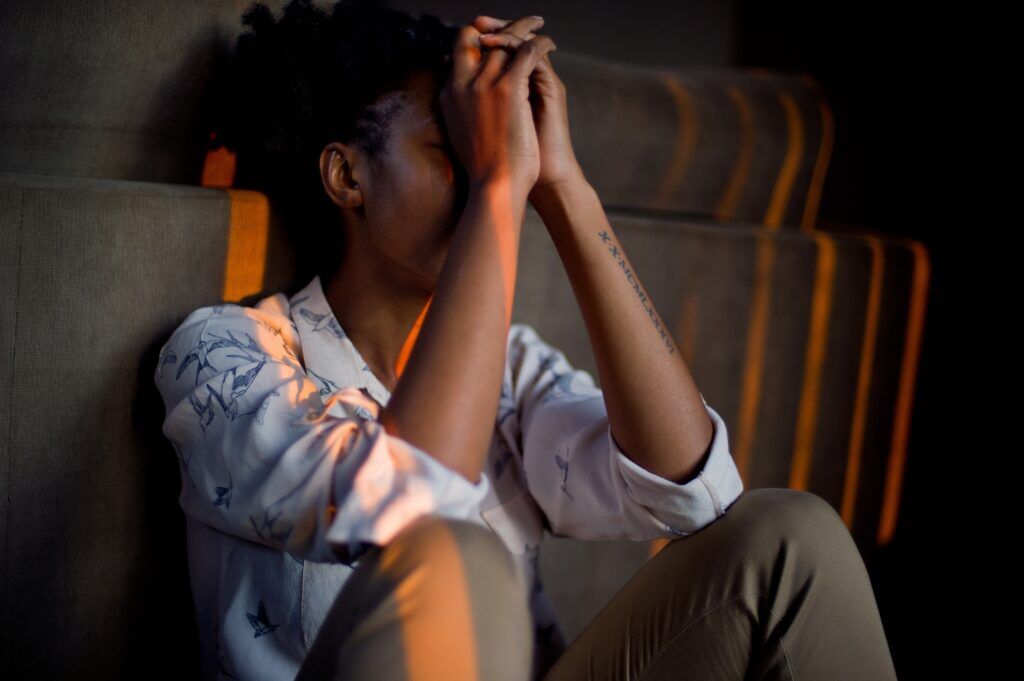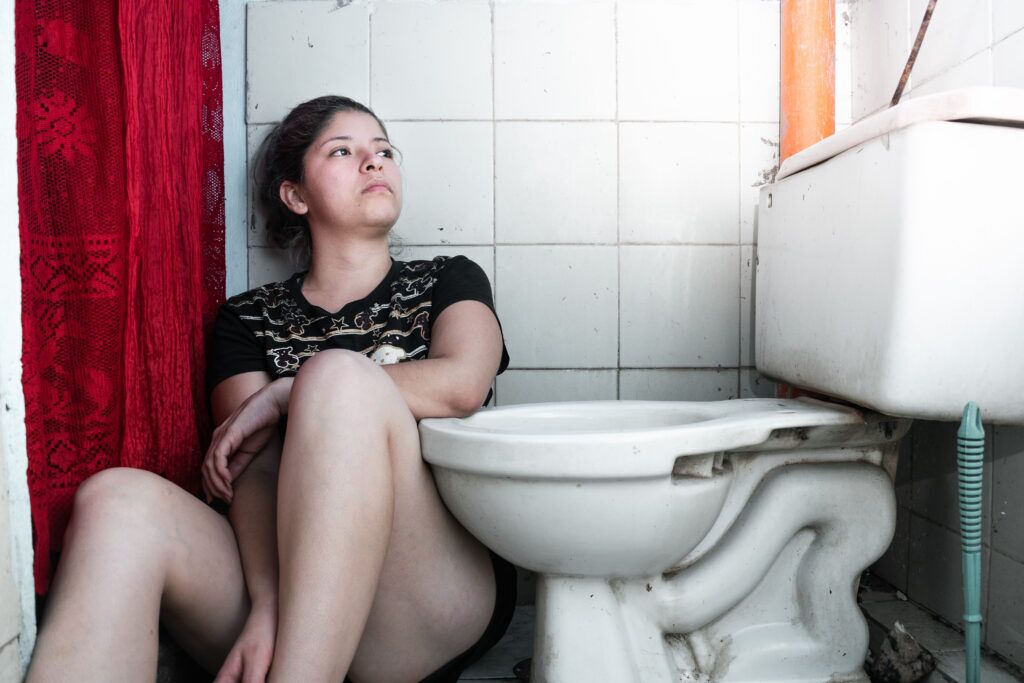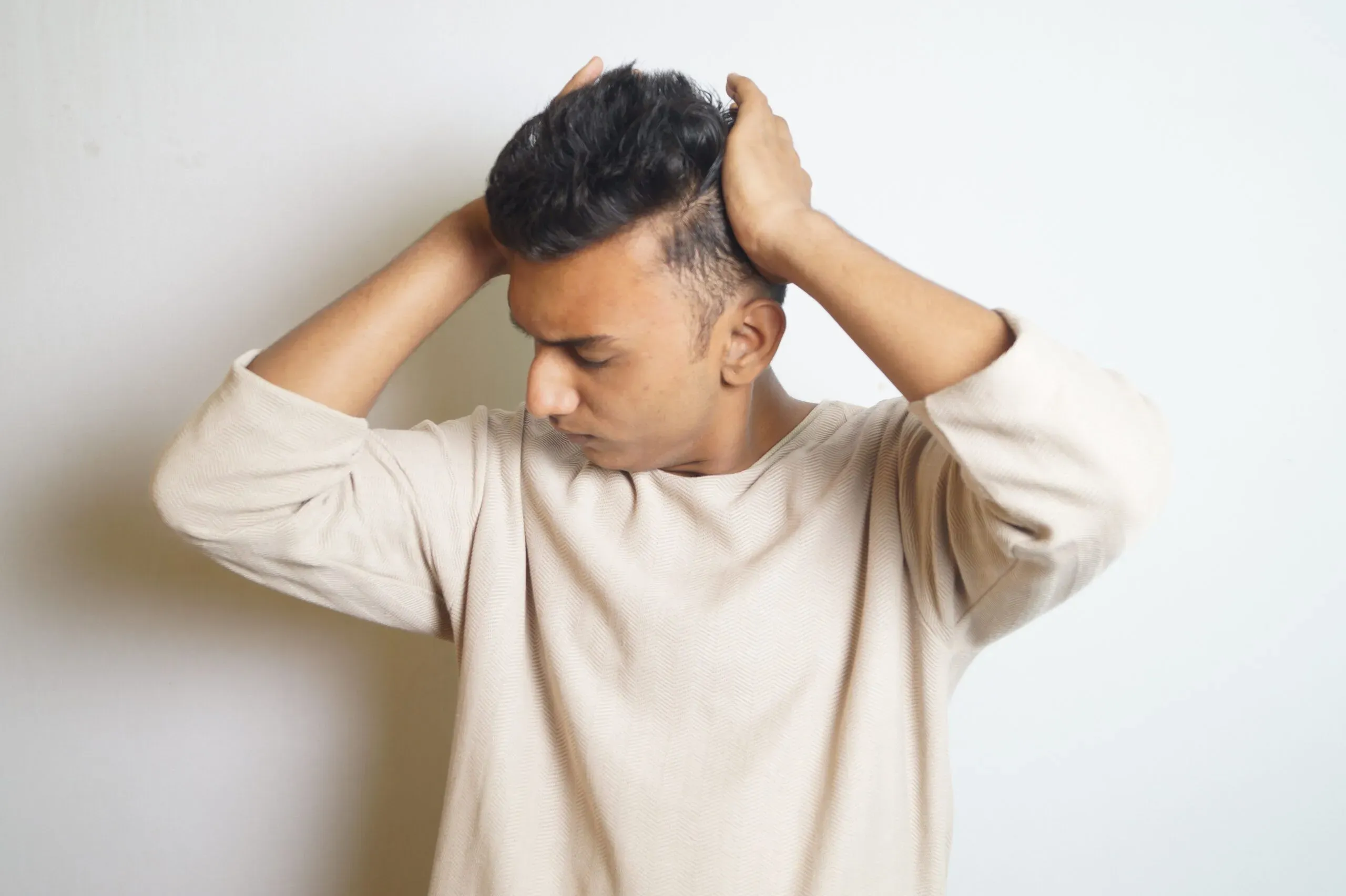Key Takeaway:
- There is a correlation between alcohol abuse and anxiety disorders: People who struggle with anxiety disorders are more likely to develop a problem with alcohol abuse. In turn, people who engage in heavy drinking or alcohol abuse may develop anxiety disorders.
- Alcohol affects the brain and can contribute to the development or exacerbation of anxiety disorders: Alcohol lowers inhibitions and can lead to impulsive or reckless behavior that exacerbates anxiety disorders. Additionally, alcohol can interfere with normal brain function and contribute to mood disorders like anxiety.
- Effective treatment for co-occurring alcohol and anxiety disorders should address both conditions simultaneously: The best treatment approach for someone struggling with both alcohol abuse and anxiety disorders is one that addresses both conditions at the same time, rather than treating them as separate issues.
Do you battle extreme anxiety? Do you turn to alcohol for comfort? Learn how alcohol misuse and anxiety issues are connected. Also, find out how to get the help you need!
Introduction
When discussing alcohol abuse and anxiety disorders, it is important to understand the relationship between the two. This section will provide an overview of the correlation between alcohol use disorders (AUDs) and anxiety disorders, as well as a brief understanding of these conditions. Through exploring the statistics on the prevalence of co-occurring anxiety disorders and AUDs, we can gain insight into the the severity of this correlation and the need for effective treatment options. Ultimately, this section aims to shed light on the complexity of this relationship and the importance of taking a holistic approach to treating these conditions.
Overview of Alcohol Use Disorders and Anxiety Disorders
Alcohol use disorders and anxiety disorders can co-occur. People with anxiety may use alcohol to ease their symptoms, potentially resulting in an alcohol use disorder. On the other hand, chronic drinking can cause anxiety symptoms when withdrawing and may lead to anxiety disorders.
These disorders can be damaging to someone’s health and wellbeing. Treatment is necessary to achieve full recovery. Treatments may include medicines, therapy and support groups. However, the best plan depends on the individual.
Early intervention is important as those suffering from both can have worse health results. If someone suspects either disorder, they should seek professional help.
Incorporating facts and figures into an overview can make it more authoritative and informative for readers.
Statistics on the Prevalence of Co-occurring Anxiety Disorders and AUDs
Alcohol Use Disorder (AUD) and Anxiety Disorders often go together. Studies show people with Social Anxiety Disorder, Panic Disorder, or Generalized Anxiety Disorder are more likely to have AUDs than the general population. Here are some stats:
- – Those with a history of AUD or Substance Use Disorders are up to 20% more likely to develop an Anxiety Disorder.
- – Anxiety Disorder sufferers are 2-3x more likely to develop AUDs than the general population.
- – Social Anxiety Disorder is the most common Anxiety Disorder in people with AUDs, at up to 20%.
- – Co-occurring Anxiety and Alcohol Use Disorders make both worse, and make treatment harder.
Pro Tip: A Mental Health Professional can help people with co-occurring Anxiety and AUDs cope and manage their conditions.

The Relationship between Alcohol Use Disorders and Anxiety Disorders
The relationship between alcohol use disorders (AUDs) and anxiety disorders is complex and multifaceted. In this section, we will explore the three main sub-sections of this topic in detail.
- First, we will discuss the development of comorbid anxiety and AUDs, examining the risk factors and potential causal factors that contribute to this co-occurrence.
- Next, we will examine the mutual maintenance of anxiety and AUDs, exploring how one disorder can exacerbate the other.
- Finally, we will look at the effects of co-occurrence on alcohol treatment outcomes, investigating how the presence of an anxiety disorder can impact the success of AUD treatment.
Development of Comorbid Anxiety and AUDs
There is a strong link between comorbid anxiety and Alcohol Use Disorders (AUDs). It is common for people with alcohol addiction to experience anxiety and vice versa.
Factors that contribute to this correlation include the effects of alcohol on the brain, genetics, and past traumatic experiences.
Using alcohol to cope with anxiety can lead to serious physical and mental health issues over time. Also, dependence on alcohol can hinder treatment of both disorders.
Accurate diagnosis is necessary to effectively address both conditions and their underlying causes. It is important to seek help and support from family and friends when managing comorbid anxiety and AUDs.
Remember, seeking treatment is a brave step, and there is no shame in asking for help when dealing with mental health and substance abuse difficulties.
Mutual Maintenance of Anxiety and AUDs
Alcohol Use Disorders (AUDs) and Anxiety Disorders often occur together. They can influence each other, making it tricky to treat them. People with anxiety may use alcohol as a way to cope. But alcohol only offers temporary relief and will worsen the anxiety in the long run. AUDs can also cause anxiety as a result of addiction or during withdrawal. Heavy alcohol use changes the brain, increasing the risk of anxiety.
Getting help is important to deal with both issues. Early diagnosis and treatment are key to limit the bad impact of these conditions. It’s good to remember that both can be treated, and people can live healthy lives.
Effects of Co-Occurrence on Alcohol Treatment Outcomes
Studies prove that individuals with both alcohol use disorders and anxiety disorders can have worse treatment results. Treatment becomes more difficult with the complexity and severity of symptoms arising from these two disorders.
The relationship between alcohol abuse and anxiety disorders is complicated and usually goes both ways. People with anxiety may use alcohol to self-medicate and cope with symptoms, which can cause alcohol use problems. Also, long-term alcohol intake can lead to anxiety disorders and worsen existing symptoms.
To have better outcomes, treatment providers must treat both conditions together. Coordination between mental health and addiction services providers can guarantee clients receive the right care. Statistics show 20% of people with anxiety disorders have a co-occurring alcohol use problem. This emphasizes the need for specialized and combined treatment.
So, if you or someone you know has a combination of alcohol use disorders and anxiety, get help from a healthcare provider at once.
Diagnostic and Treatment Considerations for Comorbid Anxiety and AUDs
For individuals experiencing both anxiety disorders and alcohol use disorders (AUDs), diagnostic and treatment considerations become more complex. In this section, we’ll explore the specific ways in which these comorbid conditions are diagnosed and classified. We’ll also take a close look at the various treatment options available, including pharmacotherapy and psychotherapy, for both anxiety disorders and AUDs. By examining these options in depth, we can gain a better understanding of how to effectively treat individuals experiencing co-occurring anxiety and AUDs.
Psychiatric Disorder Classifications and Diagnoses
Alcohol Use Disorders (AUDs) often team up with Anxiety Disorders, making diagnosis and treatment planning a bit tricky. To figure out the primary diagnosis, examine overlapping symptoms like restlessness, irritability, insomnia, and difficulty concentrating, as well as how severe and long-lasting they are.
Dealing with comorbid Anxiety and AUDs may call for antidepressants or antianxiety drugs to manage Anxiety and prevent alcohol relapse. Also, Behavioral and lifestyle interventions, like Cognitive-Behavioral Therapy or Exposure Therapy, can help address the root of Anxiety and keep alcohol triggers away.
Early detection and intervention for comorbid Anxiety and AUDs can significantly boost treatment success and avert any further complications.
Pharmacotherapy for Anxiety Disorders
Pharmacotherapy has been successful in treating individuals with combined anxiety and Alcohol Use Disorders (AUDs). To work out the best treatment plan, a full diagnostic assessment is necessary.
Selective Serotonin Reuptake Inhibitors (SSRIs) can be used to manage anxiety, either on their own or with other meds. Benzodiazepines are good at reducing anxiety, but they should not be given to people with AUDs, since they can lead to addiction.
Naltrexone and Acamprosate can help lessen alcohol intake for those with AUDs. Behavioural therapy and support groups are useful for managing both anxiety and AUDs.
Healthcare providers must take a comprehensive approach to treating both conditions at once. This is the best way to get great results.
Psychotherapy for Anxiety Disorders
Psychotherapy can be effective for both anxiety and alcohol use disorders (AUDs). It is essential to screen for both conditions when they occur together. This can complicate treatment, and might need specialized or dual treatment.
Prioritize treating the anxiety disorder first. Cognitive-behavioral therapy (CBT) can help with coping strategies and reducing anxiety symptoms, thus reducing alcohol use.
Psychotherapists must tackle the potential use of alcohol as a coping mechanism for patients with anxiety disorders. Motivate them to develop healthier coping mechanisms.
Facts/Figures: Research shows that comorbid AUDs and anxiety disorders are common in clinical populations. Rates range from 15-44%. Unmanaged anxiety can cause relapse in AUD patients. So, proper screening and treating anxiety first is critical for successful outcomes.

Pharmacotherapy for AUDs
Pharmacotherapy is a great way to help those with comorbid anxiety and Alcohol Use Disorders (AUDs). It can reduce anxiety symptoms and manage alcohol cravings, improving the chance of recovery.
Medications like acamprosate, disulfiram, and naltrexone have been approved to treat AUDs. Acamprosate reduces cravings and withdrawal symptoms, while Disulfiram makes alcohol consumption unpleasant. Naltrexone blocks the pleasure of drinking, decreasing desire.
Benzodiazepines may also be used to treat anxiety symptoms. However, they are highly addictive and could make AUDs worse. Consulting with a healthcare professional to decide the best pharmacotherapy is thus essential.
These facts demonstrate how important pharmacotherapy can be for those with comorbid anxiety and AUDs and the need for healthcare professionals to be involved in decision-making.
Psychotherapy for AUDs
Psychotherapy is an excellent treatment for those with Alcohol Use Disorders (AUDs) and comorbid anxiety issues. It is essential to distinguish between symptoms of anxiety because of alcohol withdrawal and pre-existing anxiety disorders. Before evaluating for anxiety disorders, clinicians should determine if the patient has a pre-existing anxiety issue and stop alcohol use.
To treat AUDs and anxiety, a combined approach is required. Cognitive-behavioral therapies and mindfulness interventions are especially effective. Medication-assisted treatment can help reduce anxiety in the beginning of abstinence. Furthermore, group therapy and support groups can help build community and reduce isolation for those with AUDs and anxiety. Specialized therapists who offer treatment for both conditions can help improve outcomes.
Major Perspectives on the Correlation between Anxiety Disorders and Alcohol Use Disorders
The relationship between alcohol abuse and anxiety disorders has been subject to many investigations, yet it remains a complex and multifaceted issue. In this section, we will explore three major perspectives on the correlations between anxiety disorders and alcohol use disorders.
- Psychological theories: These attempt to explain the link between alcohol use and anxiety from a psychological standpoint.
- Neurobiological theories: These suggest physiological changes in the brain may contribute to the association between anxiety disorders and alcohol use disorders.
- Psychophysiological and neurobiological correlates: This perspective explores the possible connections between psychophysiology, neurobiology, and the correlations between alcohol use disorders and anxiety disorders.
Psychological Theories
Psychological theories try to explain the tie between anxiety disorder and alcohol use disorder. The self-medication theory proposes individuals with anxiety use alcohol to temporarily ease their symptoms. The behavioral theory believes alcohol use can be rewarded due to the relief from anxiety. The conditioning theory believes the connection between alcohol and anxiety reduction is learnt from experiences. The cognitive theory believes negative emotions from anxiety can increase an individual’s risk of having an alcohol use disorder.
It is essential to note the complex relationship between these two disorders. Treatment for both conditions together is better than treating them separately. A study with 615 people with both disorders found joint treatment resulted in better anxiety symptoms and alcohol use disorder. This shows the importance of addressing both disorders together.
Neurobiological Theories
Neurobiological theories suggest a close link between anxiety and alcohol use disorders. Both involve shared neural pathways and brain regions. Three perspectives explain this correlation.
- Firstly, dysfunction in the GABAergic system can lead to anxiety and self-medication through alcohol.
- Secondly, chronic stress can dysregulate the HPA axis, causing anxiety and alcohol problems.
- Lastly, low dopamine activity in the brain’s reward center leads to seeking the rewarding effects of alcohol to reduce anxiety.
Given the complexity between the two, integrated treatment approaches are necessary. The medical community is studying these theories to develop more comprehensive and effective treatments.
Psychophysiological and Neurobiological Correlates
Research has diligently examined the relationship between anxiety disorders and alcohol use disorders from both psychophysiological and neurobiological points of view.
Psychophysiological studies reveal that alcohol use disorder can serve as a self-medication tool in the beginning, as it decreases anxiousness symptoms. However, lengthy alcohol consumption can make anxiety symptoms worse, creating a vicious cycle of reinforcement.
Furthermore, neurobiological research shows the involvement of similar brain regions and neurochemical paths in both anxiety disorders and alcohol use disorders. Chronic alcohol consumption can reduce the production and release of certain neurotransmitters, which can affect mood and anxiety levels.
It is important to be aware of the association between anxiety and alcohol misuse in order to effectively identify, treat, and manage these two highly common disorders. It is essential to seek professional help in managing these disorders.
Future Directions and Research
Researching the correlation between alcohol abuse and anxiety disorders could involve a range of treatment options and discovering the biological and psychological reasons for the link.
One area to explore is the effectiveness of cognitive-behavioral therapy, medication-assisted treatment, and other interventions for dual alcohol and anxiety disorders.
Additionally, investigating genetic and environmental factors in the development of both disorders, as well as their interaction, is a potential avenue.
Moreover, understanding the neurobiological and psychological processes related to the relationship could lead to the creation of efficient treatments and prevention strategies.
In conclusion, as we gain a deeper comprehension of the connection between alcohol abuse and anxiety disorders, further exploring new questions and directions is essential to form more targeted treatment options.
Conclusion
The relationship between alcohol abuse and anxiety is complicated. One can worsen the other, causing a spiral of bad behavior. Research shows that people who drink a lot are more likely to have anxiety disorders. People with anxiety disorders are more likely to abuse alcohol. Those who have both need treatment which addresses both conditions. This could include medicines, talking therapies, cognitive-behavioral therapy, and mindfulness training. Seeking help from professional therapists is important. They can provide guidance and resources to manage these conditions. This can lead to improved health and a better quality of life.
Some Facts About The Correlation Between Alcohol Abuse and Anxiety Disorders:
- ✅ People with anxiety disorders are two to three times more likely to have a substance use disorder, including alcoholism. (Source: National Institute of Mental Health)
- ✅ Alcohol can temporarily reduce anxiety symptoms, but long-term use can actually worsen anxiety and lead to anxiety disorders. (Source: American Addiction Centers)
- ✅ Alcohol use can interfere with the effectiveness of anxiety disorder treatments and medication. (Source: HelpGuide)
- ✅ 20 percent of people with social anxiety disorder also suffer from alcohol dependence. (Source: Anxiety and Depression Association of America)
- ✅ Treating both the alcohol abuse and the anxiety disorder concurrently is critical for successful recovery. (Source: DualDiagnosis.org)
FAQs about The Correlation Between Alcohol Abuse And Anxiety Disorders
What is the correlation between alcohol abuse and anxiety disorders?
Alcohol abuse and anxiety disorders are frequently linked, and their symptoms can overlap. Research suggests that people who suffer from anxiety disorders are more likely to turn to alcohol as a means of self-medication, which can then exacerbate their symptoms and lead to a vicious cycle of addiction and anxiety.
Which comes first, alcohol abuse or anxiety disorders?
It’s not always clear which issue came first, as the relationship between alcohol abuse and anxiety disorders can be complex and multi-faceted. Some people may develop anxiety disorders as a result of long-term alcohol abuse, while others may turn to alcohol as a way of coping with pre-existing anxiety disorders.
Does alcohol worsen anxiety symptoms?
Yes, drinking alcohol can actually increase the symptoms of anxiety in the long run. While alcohol may initially provide temporary relief from anxiety, it can ultimately make the underlying condition worse. Alcohol has a depressive effect on the body, and the withdrawal symptoms associated with alcohol dependency can also cause anxiety.
Can treating alcohol abuse help alleviate anxiety symptoms?
Yes, getting professional help for alcohol abuse can help alleviate the symptoms of anxiety as well. By treating the addiction, people can reduce their reliance on alcohol as a means of self-medication, and address the underlying causes of their anxiety disorder with the help of counseling or therapy.
How can anxiety be managed without alcohol?
There are a variety of methods for managing anxiety without turning to alcohol. These may include: exercise, meditation, deep breathing, progressive muscle relaxation, therapy, and/or medication. It’s important to work with a mental health professional to find the methods that work best for you.
What are the health consequences of long-term alcohol abuse and anxiety disorders?
Long-term alcohol abuse and anxiety disorders can have serious health consequences, including increased risk of liver disease, heart problems, stroke, and mental health issues. It’s important to address both issues as soon as possible to prevent further damage and promote overall wellbeing.
















